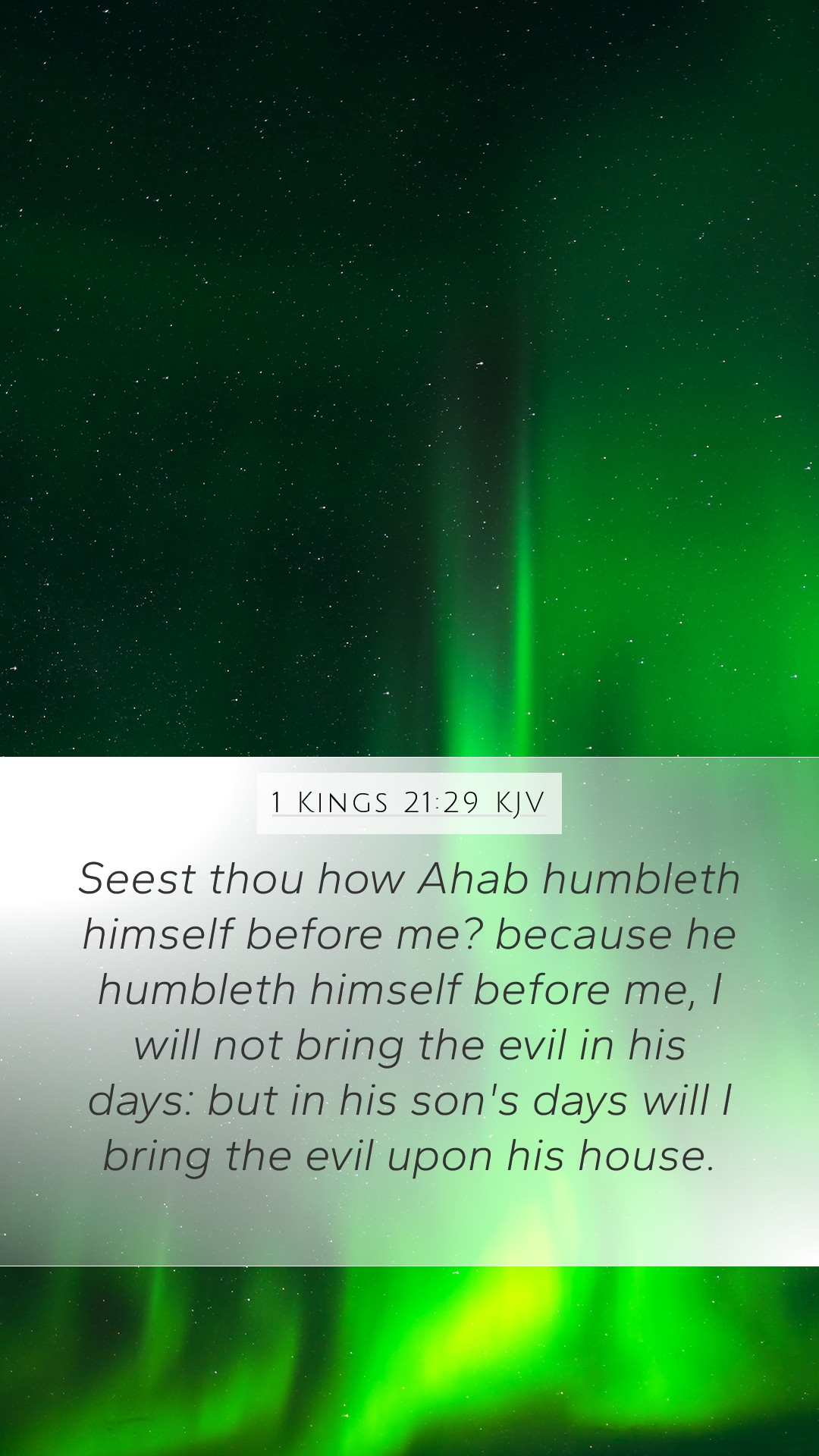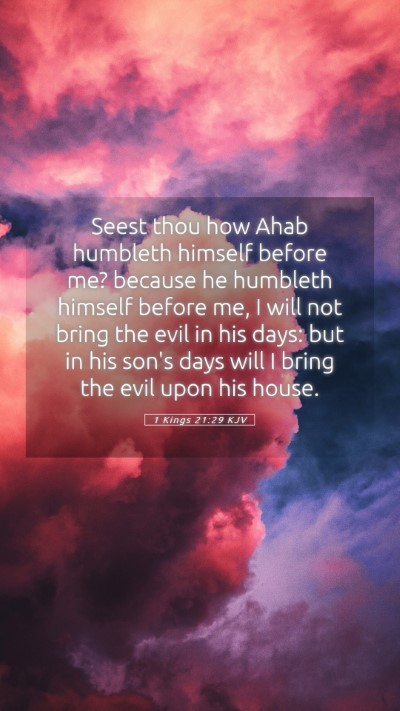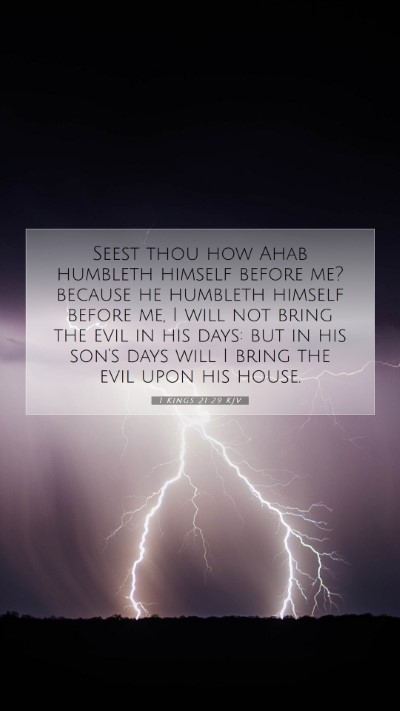Understanding 1 Kings 21:29
Bible Verse: 1 Kings 21:29 - "And the word of the Lord came to Elijah the Tishbite, saying, 'Seest thou how Ahab humbleth himself before me? because he humbleth himself before me, I will not bring the evil in his days: but in his son's days will I bring the evil upon his house.'
Bible Verse Meaning: Overview
The verse presents an important lesson about humility and repentance. Through Elijah, God acknowledges King Ahab's humble response to the prophetic word regarding his sins, indicating that Ahab's temporary humbleness earns him a reprieve from immediate judgment. The future consequences, though, are reserved for his descendants.
Detailed Explanation and Commentary
1. Divine Communication
The verse opens with the phrase "the word of the Lord came to Elijah." This highlights the concept of divine revelation, a key theme throughout the Scriptures, underscoring that God communicates His will to His chosen prophets.
2. Ahab’s Humility
Ahab is noted for humbling himself before God. According to Matthew Henry, this is significant because it was a rare instance of genuine humility from a king known for his idolatry and immoral actions. His humbling indicates a temporary submission to God’s authority, which God chooses to recognize.
Implications of Humility
Hebrew tradition often interprets humility as a pathway to divine mercy. The act of Ahab humbling himself suggests the potential for redemption, aligning with the teachings found in Scripture about the value of a contrite heart (Psalm 51:17).
3. God’s Foreknowledge and Justice
The Lord's response to Ahab highlights His attributes of mercy and justice. Albert Barnes points out that God sees Ahab's humility but also knows that this change is not profound and permanent. Therefore, God's judgment is deferred to a later time, specifically to Ahab's son, Jehoram.
Future Consequences
This postponement of judgment reflects the principle of generational consequences for sin. In doing so, God alludes to the reality of sin impacting not just the sinner but future generations, a theme reinforced by Adam Clarke in his commentary.
4. Theological Significance
The mention of "his son's days will I bring the evil upon his house" indicates a broader theological principle concerning sin and its lasting effects. Ahab's immediate deliverance suggests that while God is merciful, His justice will not be wholly evaded, resonating with the apostolic teachings on sowing and reaping (Galatians 6:7).
Cross References
- 2 Kings 21:10-15 - God's condemnation of Ahab's lineage for idolatry.
- Jeremiah 22:30 - A prophetic statement regarding Jehoiachin's lineage.
- Exodus 20:5-6 - The principle of visiting iniquity upon the children.
Application of the Verse
This verse serves as a reminder of the importance of humility in our relationship with God. It demonstrates that sincere repentance can lead to mercy, and the repercussions of one’s sins can extend beyond personal consequences to familial and communal levels. Individuals studying this verse can consider their own lives, reflecting on areas where humility and repentance are needed.
Bible Study Insights
For those involved in Bible study groups, this passage can ignite discussions on the nature of repentance and God's mercy. It is also a fruitful verse for online Bible study settings, where individuals can explore the ideas of accountability and legacy in faith.
Utilizing Bible study tools such as cross-references and commentaries can deepen one's understanding of difficult passages, including this one, by providing a rich historical and theological context. Engaging with resources and guides can further aid in comprehending how to interpret Bible verses effectively.
Conclusion
1 Kings 21:29 is a profound verse reflecting on humility, divine communication, and the long-term consequences of sin, particularly within a family lineage. Ahab’s story is a multifaceted lesson on how God's grace can extend in response to genuine humility and the eventual justice that follows unrepentant sin.


